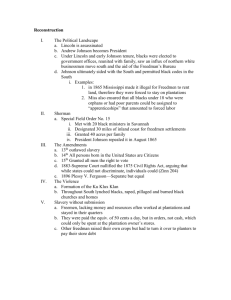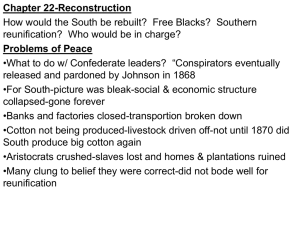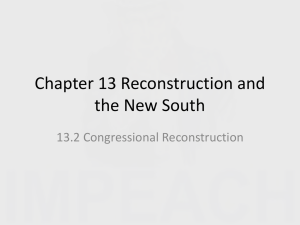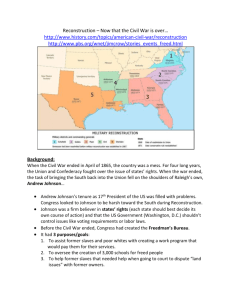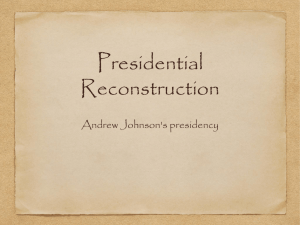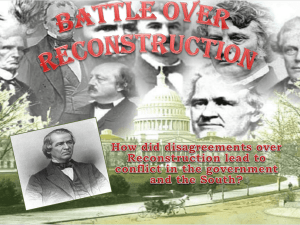reconstruction
advertisement
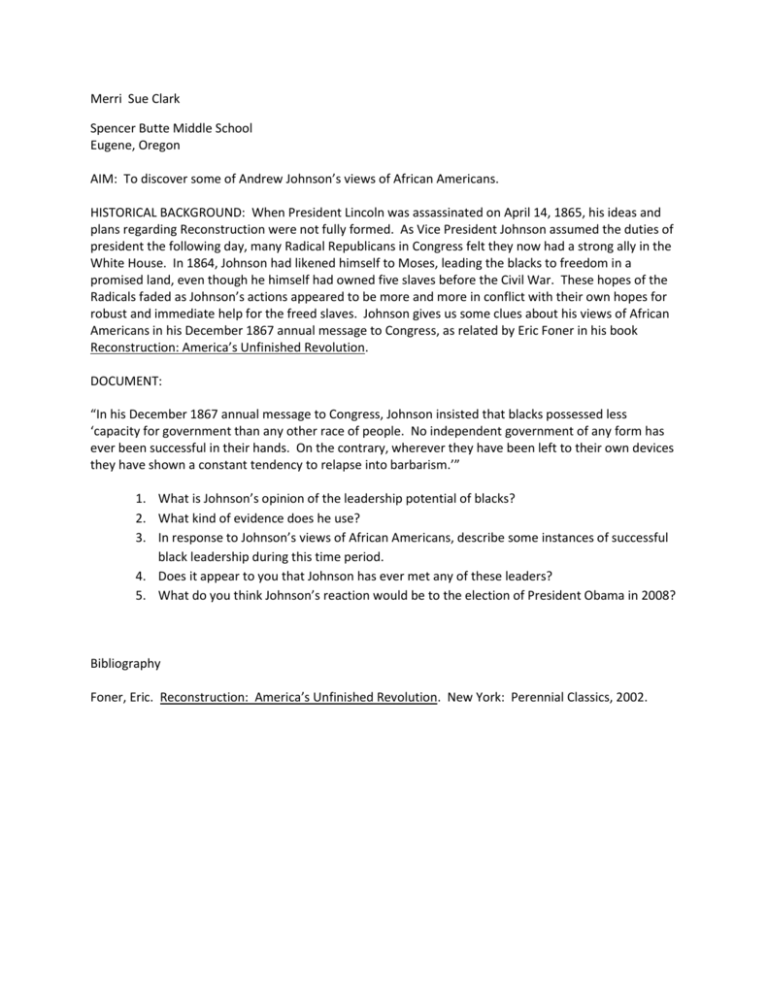
Merri Sue Clark Spencer Butte Middle School Eugene, Oregon AIM: To discover some of Andrew Johnson’s views of African Americans. HISTORICAL BACKGROUND: When President Lincoln was assassinated on April 14, 1865, his ideas and plans regarding Reconstruction were not fully formed. As Vice President Johnson assumed the duties of president the following day, many Radical Republicans in Congress felt they now had a strong ally in the White House. In 1864, Johnson had likened himself to Moses, leading the blacks to freedom in a promised land, even though he himself had owned five slaves before the Civil War. These hopes of the Radicals faded as Johnson’s actions appeared to be more and more in conflict with their own hopes for robust and immediate help for the freed slaves. Johnson gives us some clues about his views of African Americans in his December 1867 annual message to Congress, as related by Eric Foner in his book Reconstruction: America’s Unfinished Revolution. DOCUMENT: “In his December 1867 annual message to Congress, Johnson insisted that blacks possessed less ‘capacity for government than any other race of people. No independent government of any form has ever been successful in their hands. On the contrary, wherever they have been left to their own devices they have shown a constant tendency to relapse into barbarism.’” 1. What is Johnson’s opinion of the leadership potential of blacks? 2. What kind of evidence does he use? 3. In response to Johnson’s views of African Americans, describe some instances of successful black leadership during this time period. 4. Does it appear to you that Johnson has ever met any of these leaders? 5. What do you think Johnson’s reaction would be to the election of President Obama in 2008? Bibliography Foner, Eric. Reconstruction: America’s Unfinished Revolution. New York: Perennial Classics, 2002.

